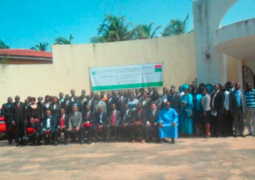Various human rights groups, liberty associations and independent analysis who have been very critical and outspoken against the provisions of new Immigration Biometric Pilot Regulations currently been implemented in the United Kingdom have commended the United Kingdom government for trying to prevent 'human rights violators to enter or live inside the country unnoticed'.
The new immigration rules include that applicants must reveal in a compulsory form 'offence such as 'murder, torture, rape, severe deprivation of liberty in violations of fundamental rules of international law and enforced disappearance of persons'. Under the provisions of The Immigration Biometric Pilot Regulations 2008, certain specified people applying for an extending of stay on either form
However the new rules mentioning human rights violations, war crime perpetrators and genocide 'could be instrumental to detect those who used violence against innocent people' according to campaigners'.
Some of the activists consider it as 'a good news' and argues that in as much as they continue to 'criticise some of the scheme's negative side', they are impress that such right violators are 'notice and if possible apprehended and prosecuted by authorities for causing untold harm to other people or their families'.
In a document addressed to this correspondent regarding the new scheme states categorically: 'Anyone who is required to apply for a biometric immigration document must provide a record of their biometric identifiers. The purpose of the pilot is to test the technology and processes'. The document further mentioning its legality added: 'These measures, which are based on powers contained in the UK Borders Act 2007, were explained in the publication Introducing Compulsory Identity Cards for Foreign Nationals issued by this Agency on 6 March 2008'.
Defining War Crimes inside the compulsory forms to be filled and signed, it further states: 'Grave breaches of the Geneva Convention committed during an armed conflict and this includes an internal armed conflict and an international armed conflict. The types of acts that may constitutes a war include willful killing, torture extensive destruction of property not justified by military necessity, unlawful deportation, the intentional targeting of civilians and the taking of hostages'.
Despite criticisms, most of the campaigners who are very sensitive about human rights, perceive this portion of the document as 'something very important in defending rights of citizens all over the world'.
Shami Chakrabarti, Director of Liberty (The National Council for Civil Liberties), who did not only criticise the new immigration scheme but also rejected the Identity Card, just few days ago told audience in the presence of government cabinet ministers that she could be very emotional when it comes to human rights and torture.
A Barrister by background, Shami worked as a lawyer in the Home Office until 2001 but since then she is campaigning against rights violation. Therefore according to critics, the new immigration rules indicating such 'acts committed with intent to destroy, in whole or in part, a national, ethnical, racial or religious group' is a welcoming to such groups.
The document seen by the Point also states: 'Acts committed at any time (not just during armed conflict) as part of a widespread or systematic attack, directed against any civilian population with knowledge of the attack' should also be disclose. Any 'terrorist act' past or present must also be disclose because the document also indicates that: 'Act committed, or the threat of action, designed to influence a government or intimidate the public and made for the purposes of advancing a political, religious or ideological cause and that involves serious violence against a person; that may endanger another person's life; creates a serious risk to the health or safety of the public; involves serious damage to property; is designed to seriously disrupt or interfere with an electronic system' should be reveal. Many commentators here described 'such positive' statements by certain human rights activists a 'U-turn' while others maintain that even though they welcome the statement printed in the forms, the human rights issue was 'simply not enough' compare to the whole text of the document.
However a human rights lawyer close to the UK National Union of Journalists told the Point: 'This is a very good set of information provided as it clearly reveals that impunity is unacceptable. Now it could be easier to identify such violators so that action could be taken in accordance with not only the


